Australia has implemented a comprehensive waste management system to address the growing issue of waste disposal. With the use of skip bins and skip bin hire services from companies like Wizz Binz, cities like Perth and surrounding suburbs like East Cannington are at the forefront of efficient rubbish removal. By adopting innovative practices and technology, Australia has successfully minimized the environmental impact of waste, ensuring a cleaner and healthier future for its residents.
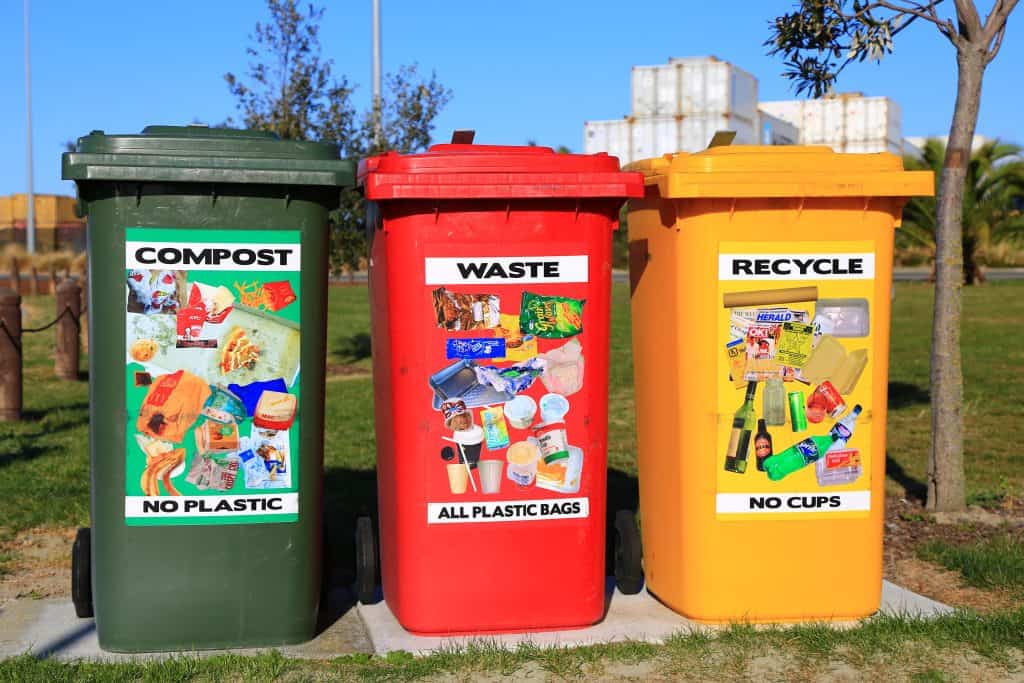
Overview of Waste Management in Australia
Australia is committed to effective waste management practices to ensure the protection of the environment and the health and well-being of its citizens. The country has implemented legislation and policies at both the national and state/territory levels to address waste management concerns. These measures include the National Waste Policy, state and territory waste strategies, and the waste management hierarchy.
Legislation and Policies
In Australia, waste management is governed by various legislation and policies. These regulations aim to promote sustainable waste management practices, reduce waste generation, and ensure the proper handling and disposal of different types of waste. The Australian government, along with state and territory governments, enforces these laws to protect the environment and foster a circular economy.
National Waste Policy
The National Waste Policy is a guiding document that outlines Australia’s approach to waste management. It focuses on preventing waste, promoting recycling, reducing landfill, and ensuring the safe disposal of hazardous materials. The policy emphasizes the need for collaboration between different levels of government, industry, and the community to achieve these objectives.
State and Territory Waste Strategies
Each state and territory in Australia has its own waste strategies that align with the National Waste Policy and address specific regional challenges. These strategies outline the goals, targets, and actions to be taken to improve waste management within their jurisdictions. They often include initiatives such as waste education programs, infrastructure development, and resource recovery projects.
Waste Management Hierarchy
The waste management hierarchy is a framework that prioritizes waste management practices based on their environmental impact. It encourages waste prevention, recycling, and resource recovery before resorting to disposal methods such as landfilling or waste-to-energy facilities. This approach promotes sustainability by minimizing the amount of waste sent to landfills and maximizing the utilization of valuable resources.
Waste Collection and Transport
Efficient waste collection and transport are essential components of waste management systems. In Australia, different sectors such as domestic, commercial, and industrial rely on various waste collection methods and services.
Domestic Waste Collection
Domestic waste collection is primarily managed by local councils or private waste management companies. It involves the regular collection of household waste and recyclables from residential areas. Common collection methods include curbside bin collections, where residents separate their waste into different bins for general waste, recycling, and green waste.
Commercial Waste Collection
Commercial waste collection serves businesses and commercial properties. Waste management companies provide specialized services tailored to the needs and volume of waste generated by commercial establishments. This may include the provision of larger bins, scheduled collections, or the use of compactor trucks for bulk waste.
Industrial Waste Collection
Industrial waste collection handles waste generated by manufacturing facilities, construction sites, and other industrial operations. These waste streams often require specialized handling due to their hazardous or bulky nature. Professional waste management companies offer industrial waste collection services that comply with specific regulations and safety protocols.
Skip Bin Services
Skip bin services are widely used in Australia for both domestic and commercial waste disposal. Skip bins, available in various sizes, provide a convenient and cost-effective method for collecting and transporting large volumes of waste. They are typically delivered to the premises, filled with waste, and then collected for proper disposal or recycling.
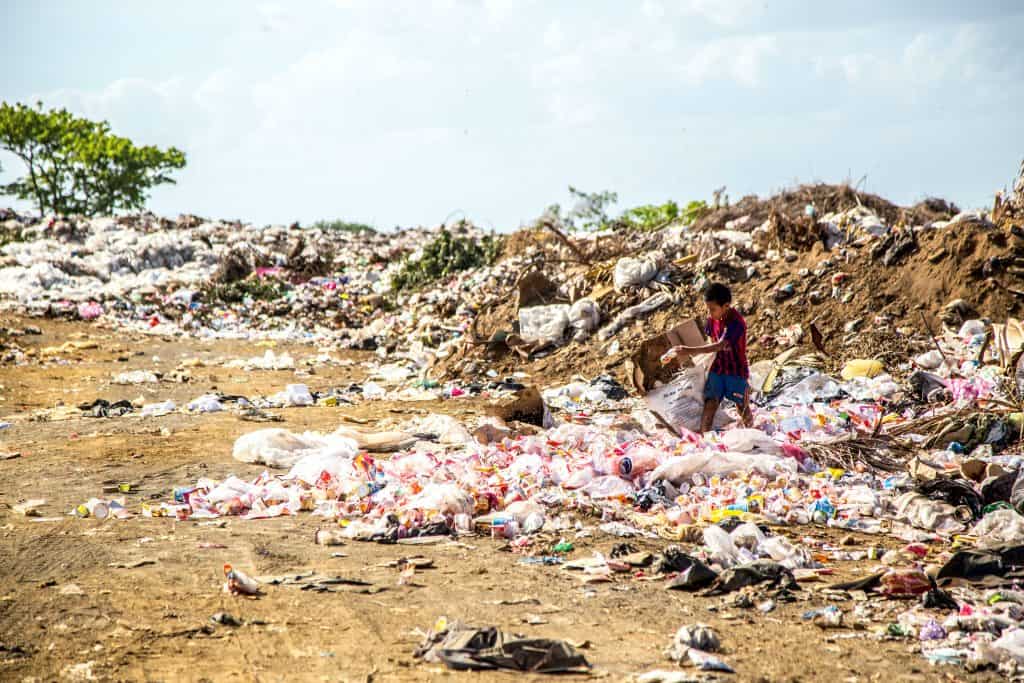
Waste Sorting and Processing
After waste collection, sorting and processing facilities play a crucial role in separating recyclable materials from general waste and preparing them for further treatment or disposal.
Material Recovery Facilities (MRFs)
Material Recovery Facilities (MRFs) are specialized facilities where waste is sorted, processed, and separated into different streams. These facilities utilize technologies such as conveyor belts, screens, magnets, and optical sorters to automatically identify and separate recyclable materials like paper, plastic, glass, and metal. The recovered materials are then sent for recycling or sale to manufacturers.
Organic Waste Processing
Organic waste, such as food scraps and garden waste, can be processed through various methods to recover valuable resources and minimize landfill waste. Composting is a common organic waste processing technique that transforms organic matter into nutrient-rich compost that can be used in agriculture and gardening. Anaerobic digestion is another method used to convert organic waste into biogas and fertilizer.
E-Waste Processing
Electronic waste (e-waste), which includes old computers, televisions, and other electronic devices, requires specialized processing due to its hazardous components and potential for resource recovery. E-waste processing involves dismantling and segregating different components and materials for recycling. Dedicated e-waste recycling facilities or collection programs ensure the proper disposal and recycling of e-waste.
Hazardous Waste Treatment
With proper regulations and protocols in place, hazardous waste is treated separately to minimize its environmental impact and protect public health. Hazardous waste treatment facilities employ various methods, such as chemical treatment, encapsulation, or high-temperature incineration, to neutralize or safely dispose of hazardous substances. Strict controls and monitoring ensure the safe handling and treatment of hazardous waste throughout the process.
Recycling Programs and Initiatives
Recycling plays a vital role in waste management as it reduces the amount of waste being sent to landfills and conserves valuable resources. Australia has implemented numerous recycling programs and initiatives to encourage residents, businesses, and industries to recycle their waste.
Container Deposit Schemes
Container deposit schemes aim to increase recycling rates of beverage containers by providing a financial incentive for their return. Under these programs, consumers receive a refund for returning eligible containers, which are then sorted and recycled. These schemes help reduce litter and promote recycling, while also generating revenue for community initiatives.
Recycling Collection Programs
Recycling collection programs are implemented at various levels, including local councils, recycling facilities, and waste management companies. These programs provide residents and businesses with recycling bins or drop-off centers to conveniently dispose of recyclable materials such as paper, cardboard, plastic, glass, and metal. The collected materials are then transported to recycling facilities for processing.
Product Stewardship Schemes
Product stewardship schemes aim to reduce the environmental impact of specific products throughout their life cycle, including disposal. These schemes require manufacturers to take responsibility for the end-of-life management of their products, ensuring they are recycled or disposed of correctly. Examples of product stewardship programs in Australia include those for batteries, paint, and tyres.
The National Television and Computer Recycling Scheme
The National Television and Computer Recycling Scheme (NTCRS) is a government initiative that promotes the responsible recycling of electronic waste. Through this program, consumers can drop off their unwanted televisions and computers at designated collection points, ensuring their environmentally-friendly disposal. The NTCRS helps divert e-waste from landfill and facilitates the recovery of valuable materials.
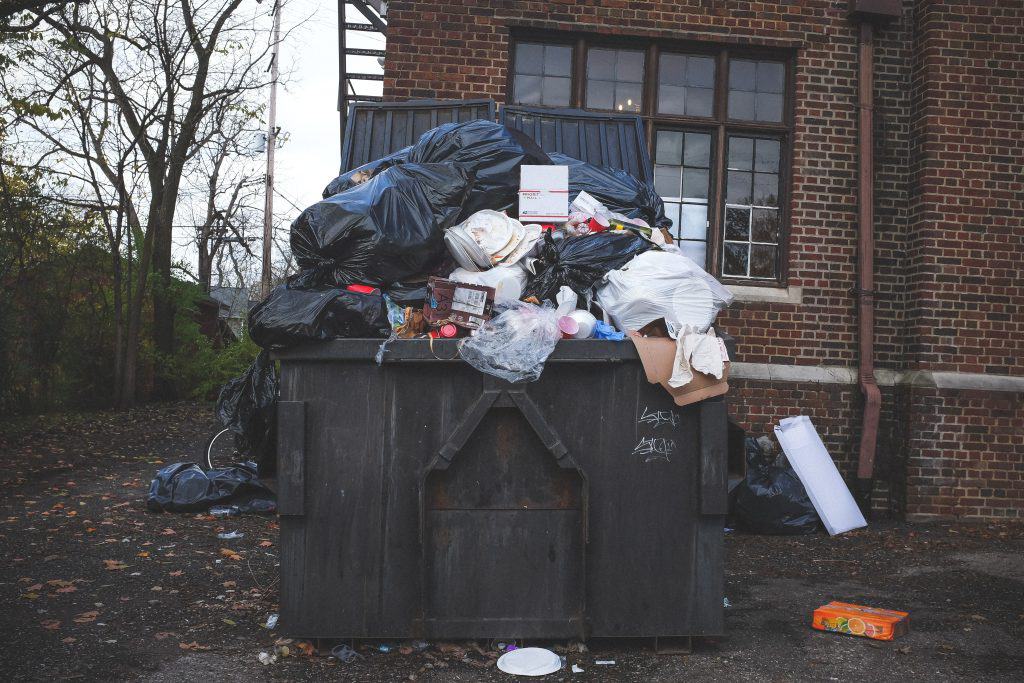
Waste Disposal
Despite efforts to minimize waste generation and maximize recycling, there is still a need for proper waste disposal methods for non-recyclable or hazardous waste.
Landfills
Landfills are designated areas where waste is disposed of in a controlled manner. Modern landfills employ techniques such as liner systems, leachate collection, and methane capture to minimize environmental impacts. Strict regulations govern landfill design, operation, and closure to ensure the protection of groundwater and surrounding ecosystems.
Waste-to-Energy Facilities
Waste-to-energy facilities use thermal and chemical processes to convert non-recyclable waste into heat, electricity, or other forms of energy. These facilities help reduce the volume of waste sent to landfills while generating renewable energy. Advanced technologies and emissions control measures are employed to ensure the safe and environmentally responsible conversion of waste into energy.
Waste Exportation
Some waste materials, particularly those that can be recycled or processed more effectively overseas, are exported for treatment or disposal. Waste exportation involves compliance with national and international regulations to ensure the responsible management and disposal of the waste. The Australian government closely monitors waste exportation to prevent the illegal dumping of waste in other countries.
Special Waste Disposal
Certain types of waste, such as asbestos, medical waste, or contaminated materials, require special handling and disposal due to their potential health and environmental risks. Special waste disposal facilities are equipped with the necessary safeguards and procedures to handle and treat these waste streams safely. Strict regulations and monitoring ensure the proper disposal of special waste.
Waste Management in Cities
Australia’s major cities face unique waste management challenges due to their high population densities and diverse waste streams. Here’s a look at waste management in some of the country’s largest cities:
Sydney
Sydney has comprehensive waste management systems that cater to its large population and commercial sectors. The city’s waste collection and transport services cover both residential and commercial areas, with specific strategies for high-rise buildings and densely populated neighborhoods. Recycling programs, such as the Food Organics Garden Organics (FOGO) collection, are also in place to divert organic waste from landfills.
Melbourne
Melbourne places strong emphasis on waste reduction and resource recovery. The city has implemented various recycling initiatives and programs, including comprehensive recycling bin collections and drop-off centers. Melbourne’s waste management practices aim to minimize waste sent to landfills and maximize recycling rates through community engagement and education.
Brisbane
Brisbane focuses on sustainable waste management practices through its waste collection and processing programs. The city has implemented a three-bin system, which includes separate bins for general waste, recyclables, and green waste. Brisbane also emphasizes public education and awareness campaigns to encourage waste minimization and recycling.
Perth
Perth has implemented waste management strategies that align with its unique geographical and environmental considerations. The city prioritizes waste diversion through recycling and resource recovery. Skip bin hire services are commonly used by residents and businesses for effective waste collection. Perth also utilizes advanced waste treatment technologies to optimize waste management and reduce landfill dependency.
Adelaide
Adelaide has made significant progress in waste management by establishing resource recovery centers and implementing comprehensive recycling programs. The city encourages residents to separate and recycle their waste through the use of recycling bins and drop-off centers. Adelaide’s waste management practices revolve around education, encouraging sustainable choices, and promoting a circular economy.
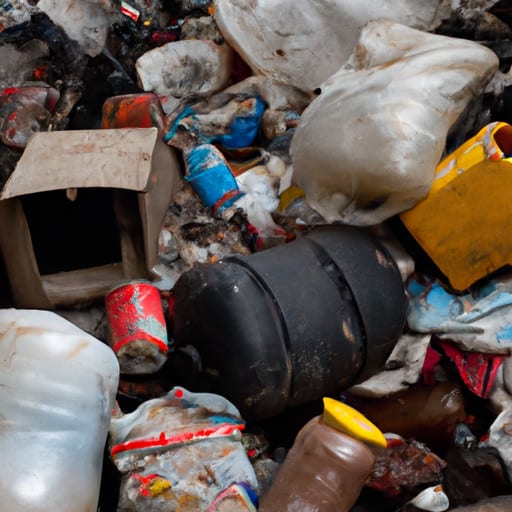
Waste Management in Regional Areas
Waste management in regional areas presents its own set of challenges and requires tailored strategies to address specific needs and limitations.
Rural Waste Management Challenges
Rural areas often face challenges related to distance, infrastructure, and funding limitations. Due to the lower population density, waste collection and processing services may be less accessible. However, regional communities often develop innovative waste management solutions, such as community recycling centers or local composting initiatives, to overcome these challenges.
Remote Waste Management Strategies
Remote areas, such as islands or isolated communities, require unique waste management strategies due to their limited accessibility and logistics constraints. These strategies may involve waste collection by specialized vehicles, barge transport to mainland facilities, or decentralized waste processing and disposal methods. Community engagement and education play vital roles in ensuring the success of remote waste management initiatives.
Community-Led Waste Initiatives
In regional areas, community-led waste initiatives are often essential for effective waste management. These initiatives may include local recycling programs, community composting facilities, or waste reduction campaigns. Community participation and collaboration with local government and organizations significantly contribute to the success and sustainability of these waste management efforts.
Waste Reduction and Education
Waste reduction and education programs play a crucial role in promoting sustainable waste management practices and influencing behavioral changes.
Waste Minimization Programs
Waste minimization programs focus on reducing waste generation by encouraging individuals, businesses, and industries to adopt practices that prioritize waste prevention and reduction. These programs may include initiatives such as waste audits, resource efficiency assessments, or the promotion of reusable products and packaging.
Public Awareness Campaigns
Public awareness campaigns aim to educate individuals about the importance of waste management, recycling, and sustainable practices. These campaigns utilize various channels, such as media advertisements, school programs, and community events, to inform and engage the public. By raising awareness and highlighting the benefits of responsible waste management, these campaigns motivate individuals to make more sustainable choices.
School and University Education
Schools and universities play a vital role in waste education by teaching students about recycling, waste reduction, and sustainable practices. Waste management is often integrated into the curriculum, with students learning about the environmental impacts of waste and the importance of recycling. Educational institutions also implement recycling programs and encourage responsible waste management on their premises.
Corporate Sustainability Initiatives
Many businesses and corporations in Australia have adopted corporate sustainability initiatives that prioritize waste reduction and environmentally responsible practices. These initiatives may include the establishment of recycling and waste management programs within their facilities, the use of sustainable packaging, or partnerships with recycling and resource recovery companies. By leading by example, businesses contribute to sustainable waste management practices at both the organizational and community levels.
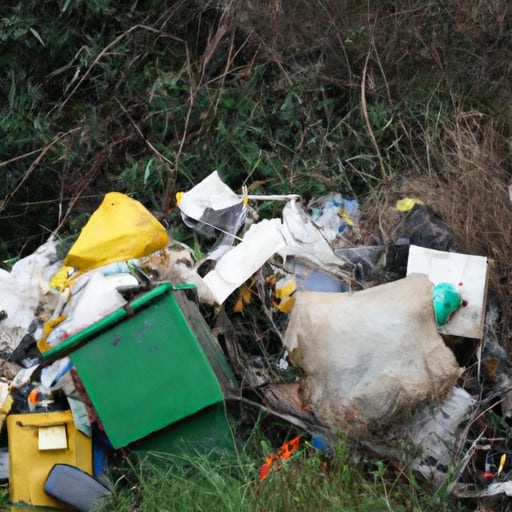
Waste Management Technologies
Technological advancements have enabled the development and implementation of innovative waste management technologies that enhance resource recovery and minimize environmental impacts.
Advanced Waste Treatment
Advanced waste treatment technologies, such as mechanical sorting, advanced recycling techniques, and waste upgrading, enable the recovery of valuable resources from waste streams. These technologies improve material separation and processing capabilities, allowing for higher recycling rates and more efficient waste management.
Anaerobic Digestion
Anaerobic digestion is a biological process that converts organic waste into biogas and nutrient-rich digestate. This technology harnesses the natural decomposition process in an oxygen-free environment to produce renewable energy and valuable by-products. Anaerobic digestion is particularly effective in processing high organic waste streams such as food waste or agricultural residues.
Pyrolysis and Gasification
Pyrolysis and gasification technologies use thermal processes to convert waste materials into useful products. Pyrolysis involves heating waste in the absence of oxygen to produce oil, gas, and char. Gasification, on the other hand, uses a partial combustion process to produce a combustible gas, which can be used for energy generation or chemical production. These technologies offer alternative pathways for waste valorization and energy recovery.
Mechanical-Biological Treatment
Mechanical-biological treatment (MBT) combines mechanical sorting and biological digestion to treat mixed waste. MBT facilities mechanically separate recyclable materials and then subject the remaining waste to biological treatment, such as composting or anaerobic digestion. This approach enhances the recovery of recyclables and enables the extraction of resources from mixed waste.
Challenges and Future Outlook
Despite significant progress in waste management, Australia still faces several challenges, and the future outlook requires continuous improvement and innovation.
Increasing Waste Generation
Australia’s population growth, urbanization, and changing consumption patterns have led to an increase in waste generation. The challenge lies in managing this growing volume of waste while ensuring sustainable practices and minimizing environmental impacts. Waste reduction initiatives, circular economy approaches, and innovative technologies will play crucial roles in meeting this challenge.
Plastic Waste Management
Plastic waste presents a significant challenge for waste management in Australia and globally. The improper disposal of plastics can result in litter, marine pollution, and harm to ecosystems. To address this issue, Australia is implementing strategies to reduce plastic consumption, improve recycling infrastructure, and promote the use of recycled materials.
E-Waste Management
The management of electronic waste continues to be a key concern due to the rapid advancement of technology and the increasing consumer demand for electronic devices. Australia is taking measures to improve the collection, recycling, and disposal of e-waste through dedicated programs, extended producer responsibility, and awareness campaigns. Collaborative efforts between government, industry, and the public are essential in managing this growing waste stream effectively.
Circular Economy Transition
Australia’s waste management sector is transitioning towards a circular economy model, which aims to minimize waste generation and maximize resource recovery. This transition requires new policies, investments in recycling infrastructure, improved product design, and collaboration across sectors. Australia is adopting strategies such as product stewardship, eco-design, and extended producer responsibility to drive the transition towards a circular economy.
In conclusion, waste management in Australia relies on legislation, policies, and comprehensive strategies to promote sustainable practices, recycling, and resource recovery. The country employs different waste collection, sorting, and processing methods to handle various waste streams. Recycling programs, waste reduction initiatives, and education play vital roles in fostering responsible waste management. Technological advancements and the transition towards a circular economy are key drivers for improving waste management practices. While there are challenges to overcome, Australia is working towards a more sustainable and efficient waste management system for the benefit of the environment and society.


